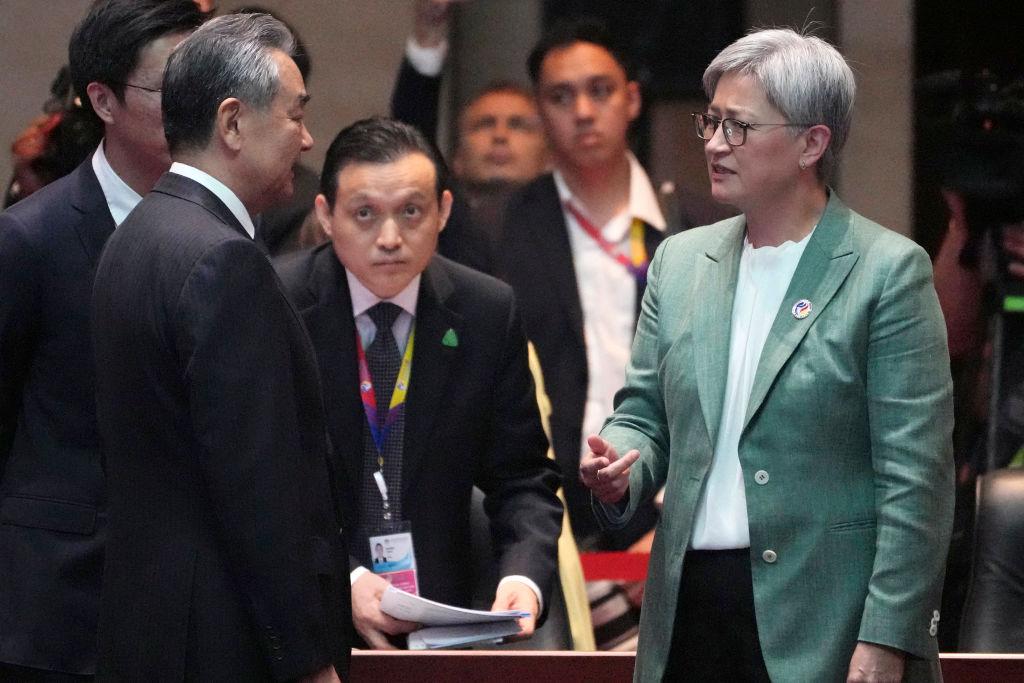Australian Foreign Minister Penny Wong has urged her Chinese counterpart Wang Yi to ensure his country will “play a productive role on the international stage” by continuing to reduce tariff barriers against imports of Australian goods.
Despite trade tariffs against wine, barley, meat, and other products having fallen, Senator Wong said there remain points of contention, which she raised with Wang at a bilateral meeting in New York on Sept. 25. There, she pressed him to drop the remaining barriers against Australian rock lobster imports.





